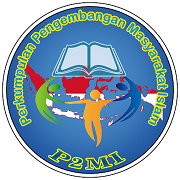POLA ASUH ORANG TUA PENGGUNA NARKOBA (STUDI TERHADAP REMAJA DALAM KONTEKS ACEH)
Abstract
Abstract: This study aims to determine the relationship between parenting and drug abuse among adolescents. The study used a cross sectional survey, which involved 181 adolescent drug users who underwent rehabilitation programs at rehabilitation centers in Aceh. Their ages ranged from 12 to 22 years. The instrument used in this study was the Parental Authority Questionnaire (PAQ) from Buri (1991) which was used to measure parenting patterns from adolescents' perceptions. The data collected was analyzed using the computer application program Statistical Package for the Social Sciences (SPSS) version 23.0. The results showed that there was a significant relationship between parenting and drug abuse behavior. Authoritative parenting has a significant negative effect on drug abuse, while authoritarian and permissive parenting has a significant positive effect on drug abuse. This study generally informs that parenting patterns can influence the behavior of adolescents involved in drug abuse. Therefore, this research has implications for families and educational institutions.
Keywords: Parenting Style; Drug Users; Adolescence.
Abstrak: Penelitian ini bertujuan untuk mengetahui hubungan antara pola asuh orang tua dengan penyalahgunaan narkoba dalam kalangan remaja. Penelitian dilakukan dengan menggunakan survei cross sectional, yang melibatkan 181 orang remaja pengguna narkoba yang menjalani program rehabilitasi pada pusat-pusat rehabilitasi narkoba di Aceh. Usia mereka berkisar antara 12 sampai dengan 22 tahun. Instrumen yang digunakan dalam penelitian ini adalah Parental Authority Questionnaire (PAQ) dari Buri (1991) yang digunakan untuk mengukur pola asuh orang tua dari persepsi remaja. Data yang terkumpul dianalisis menggunakan bantuan aplikasi komputer program Statistical Package for the Social Sciences (SPSS) versi 23.0. Hasil penelitian menunjukkan ada hubungan yang signifikan antara pola asuh orang tua dengan perilaku penyalahgunaan narkoba. Pola asuh demokratis mempunyai pengaruh negatif yang signifikan terhadap penyalahgunaan narkoba, sementara pola asuh otoriter dan permisif mempunyai pengruh positif yang signifikan terhadap penyalahgunaan narkoba. Penelitian ini secara umum menginformasikan bahwa pola asuh orang tua dapat mempengaruhi perilaku remaja terlibat dalam penyalahgunaan narkoba. Oleh karena itu, penelitian ini memberikan implikasi bagi keluarga dan lembaga-lembaga pendidikan serta pusat rehabilitasi narkoba.
Kata Kunci: Pola Asuh Orang Tua; Pengguna Narkoba; Remaja.
Full Text:
PDFReferences
Adalbjarnardottir, Sigrun, and Leifur G. Hafsteinsson. 2001. “Adolescents’ Perceived Parenting Styles and Their Substance Use: Concurrent and Longitudinal Analyses.” Journal of Research on Adolescence 11(4):401–423.
Asri, Misran. 2020. “Jumlah Pengguna Narkoba di Aceh Capai 82 Ribu, BNN Terdorong Gelar Bimtek Pegiat Anti Narkoba". Serambi Indonesia.
Barnes, Grace M., and Michael P. Farrell. 1992. “Parental Support and Control as Predictors of Adolescent Drinking, Delinquency, and Related Problem Behaviors.” Journal of Marriage and the Family 54(4):763.
Baumrind, Diana. 1971. “Current Patterns of Parental Authority.” Developmental Psychology 4 (1 Part 2):1–103.
Baumrind, Diana. 1991. “The Influence of Parenting Style on Adolescent Comptence and Substance Use.” Journal of Early Adolescence 11(1):56–95.
Bernardo, Allan B. I. 2010. “Exploring Filipino Adolescents’ Perceptions of the Legitimacy of Parental Authority over Academic Behaviors.” Journal of Applied Developmental Psychology 31(4):273–280.
Boutelle, Kerri, Marla E. Eisenberg, Melissa L. Gregory, and Dianne Neumark-Johnson, G., Gerry Kent, and J. Leather. 2005. “Strengthening the Parent-Child Relationship: A Review of Family Interventions and Their Use in Medical Settings.” Child: Care, Health and Development 31(1): 25–32.
Brooks, Jane. 2013. The Process of Parenting. Ninth Edit. New Yok: McGraw-Hill Company, Inc.
Castrucci, Brian C., and Karen K. Gerlach. 2006. “Understanding the Association between Authoritativ Parenting and Adolescent Smoking.” Maternal and Child Health Journal 10(2):217–224.
Chao. 1994. “Beyond Parental Control and Authoritarian Parenting Style: Understanding Chinese Parenting through the Cultural Notion of Training Rutb.” Child Development 65(4):1111–1119.
Cohen, Deborah A., and Janet Rice. 1997. “Parenting Styles, Adolescent Substance Use, and Academic Achievement.” Journal of Drug Education 27(2):199–221.
Eisenberg, Nancy, Richard A. Fabes, and Bridget C. Murphy. 1996. “Parents’ Reactions to Children’s Negative Emotions: Relations to Children’s Social Competence and Comforting Behavior.” Child Development 2227–2247.
Fletcher, Anne C., Jill K. Walls, Emily C. Cook, Karis J. Madison, and Tracey H. Bridges. 2008. “Parenting Style as a Moderator of Associations Between Maternal Disciplinary Strategies and Child Well-Being.” Journal of Family Issues 29(12):1724–1744.
Joseph, Mary Venus, and Jilly John. 2008. “Impact of Parenting Styles on Child Development.” Global Academic Society Journal: Social Science Insight 1(5):16–25.
Hoffmann, John P., and Stephen J. Bahr. 2014. “Parenting Style, Religiosity, Peer Alcohol Use, and Adolescent Heavy Drinking.” Journal of Studies on Alcohol and Drugs 75 (2):222–227.
Jerry J. Bigner, Clara Gerhardt. 2019. Parent-Child Relations. Tenth Edit. Boston: Pearson Education, Inc.
Klein, Helen Altman, and Jeanne Ballantine. 2001. “For Parents Particularly: Raising Competent Kids: The Authoritative Parenting Style.” Childhood Education 78 (1):46 47.
Lamborn, Nina S. Mounts, and Sanford M. Dornbusch. 1991. “Patterns of Competence and Adjustment among Adolescents from Authoritative, Authoritarian, Indulgent , and Neglectful Families.” Child Development 62(5):1049–1065.
Montgomery, Catharine, John E. Fisk, and Laura Craig. 2008. “The Effects of Perceived Parenting Style on the Propensity for Illicit Drug Use : The Importance of Parenta Warmth and Control.” Drug and Alcohol Review, (November 2007): 640–649.
Riquelme, María, Oscar F. García, and Emilia Serra. 2018. “Psychosocial Maladjustment in Adolescence: Parental Socialization, Self-Esteem, and Substance Use.” Anales de Psicologia 34(3):536–544.
Sigelman, Carol K., and Elizabeth A. Rider. 2009. Life-Span Human Development, 6th Ed. Belmont, CA, CA: Wadsworth/Cengage Learning.
Slicker, Ellen K. 1998. “Relationship of Parenting Style to Behavioral Adjustment in Graduating High School Seniors.” Journal of Youth and Adolescence 27(3):18–28.
Steinberg, Laurence. 2001. “We Know Some Things : Parent – Adolescent Relationships in Retrospect and Prospect.” Journal of Research on Adolescence 11(1):1–19.
Susie D. Lamborn and Nina S. Mounts, Laurence Steinberg, M. Dornbusch Stanford, “Patterns of Competence and Adjustment among Adolescents from Authoritative, Authoritarian, Indulgent, and Neglectful Families.” Child Development 62(5), (1991), 1049–1065.
Sztainer. 2009. “The Reciprocal Relationship between Parent-Child Connectedness and Adolescent Emotional Functioning over 5 Years.” Journal of Psychosomatic Research 66(4): 309–316.
DOI: http://dx.doi.org/10.22373/al-ijtimaiyyah.v7i2.10434
Refbacks
- There are currently no refbacks.
Copyright (c) 2021 Ismiati, Zarina binti Mat Saad, Jamaludin Mustaffa

This work is licensed under a Creative Commons Attribution-ShareAlike 4.0 International License.
Jurnal Al-Ijtimaiyyah has been indexed by:



















